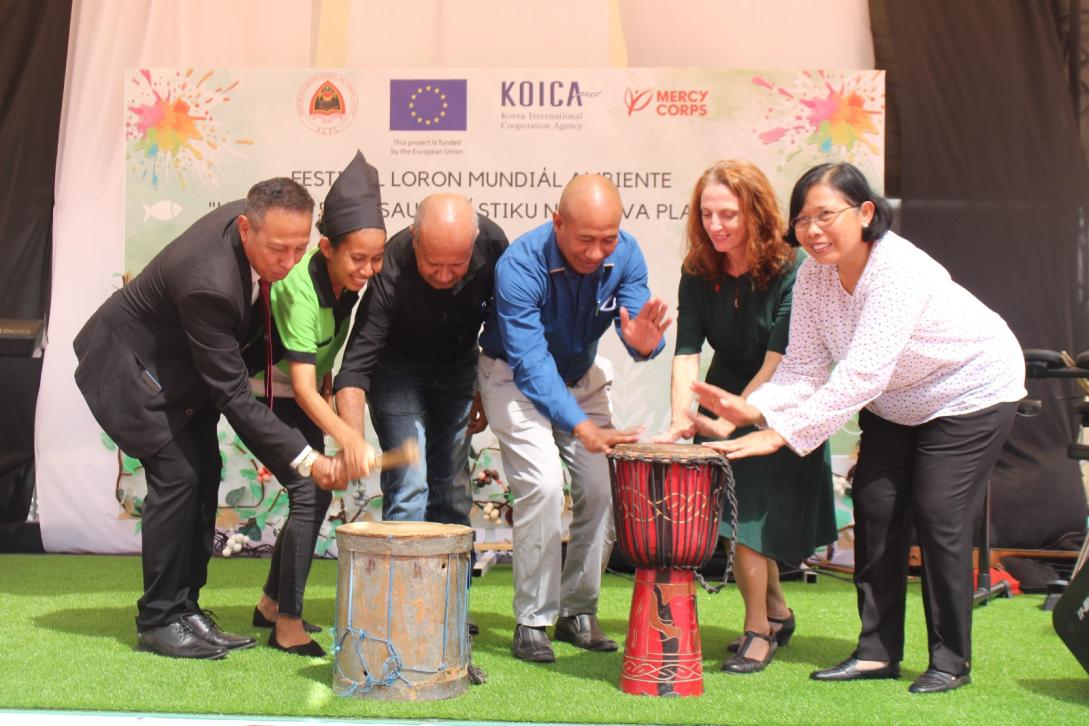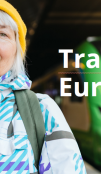Mercy Corps, European Union (EU), and Korean International Cooperation Agency (KOICA) open “World Environment Day Festival” dedicated to responsible plastic use.

On June 5, the opening day of the festival was dedicated to cross-sector dialogue between government, businesses, and civil society. Through a series of forum discussions and networking activities, participants got the opportunity to connect, share ideas, experience, and explore reduce, reuse, and recycle approaches that can help address the growing challenge of plastic waste.
The festival continued for two days long at Timor-Plaza parking area, Dili, where visitors discovered a recycling and upcycling market gathering local talents, artists, and entrepreneurs. Sixteen businesses and social enterprises took advantage of these two days to hold product demonstrations, showcase their creations, and interact directly with new clients. The space was full of live music, theater, poetry, visual art, and many more creative surprises to raise awareness on plastic pollution,
The festival, designed in collaboration with the Government of Timor-Leste, highlighted the importance of empowering citizens and motivating the emergence of environmental advocates who can become agents of change within their households and communities. It formed part of a broader series of collective initiatives supporting local upcycling and recycling groups – who often lack exposure, access to partners, technology, and spaces to sell their products – in order to make it more economically feasible to collect, sort and reprocess materials in Timor-Leste.
The Circular economy program is an innovative partnership between KOICA, European Union, a local construction company Caltech, global brewer Heineken, and Mercy Corps, to accelerate the transition towards a circular economy. In a Circular Economy, unnecessary plastic use is curtailed and replaced, plastic waste is disposed of responsibly and turned into sought-after products, and resource recovery systems. This supports Timor-Leste’s vision to become a recognized tourism destination, respectful of its natural beauty and cultural heritage.
“Plastic is a worldwide plague affecting the environment and ourselves. It can affect human health, destroy ecosystems, and harm wildlife – especially marine species. Its production, use and disposal is an important contributor to greenhouse gas emissions. It’s polluting effects can be noted everywhere: at the top of mountains, on the fields where our food grows, and even in a clean house. But the place where there is an alarming quantity is in the sea. What you can observe on the beaches in Timor-Leste is in fact the top of the iceberg, as most of the plastic waste is in form of invisible micro elements”, said the Ambassador of the European Union Delegation to Timor-Leste, Marc Fiedrich.




